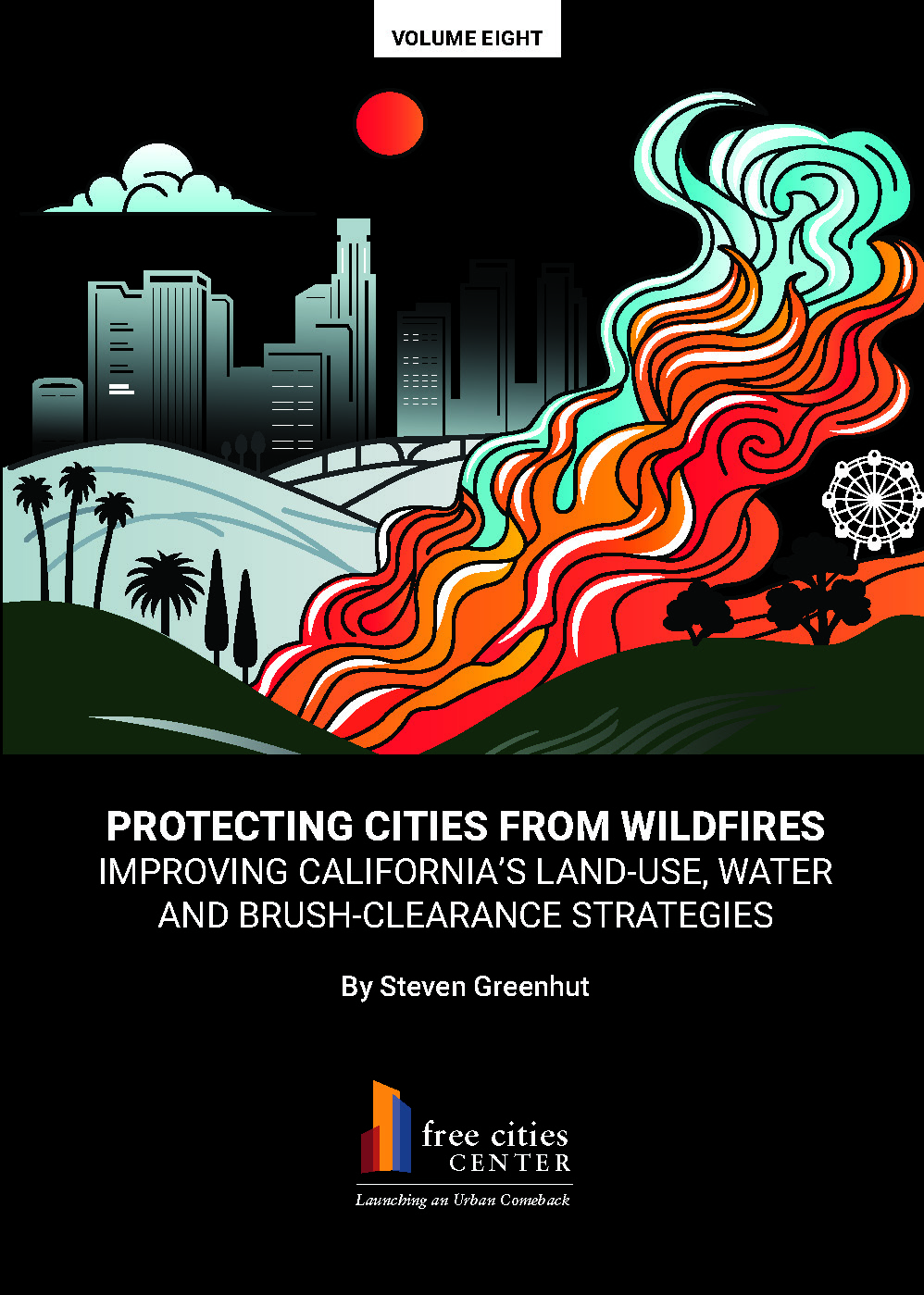SACRAMENTO – The Free Cities Center at the Pacific Research Institute – the California-based, nonpartisan, free market think tank – today released a new booklet examining the failures in state and local wildfire prevention and response policies during this year’s devastating Southern California wildfires, offering practical reforms to make California communities more resilient in the future.
“California’s leaders talk endlessly about climate change while failing to make the practical policy changes that would actually protect lives and property,” said Free Cities Center director and booklet author Steven Greenhut.
“Protecting Cities from Wildfires: Improving California’s Land-Use, Water and Brush-Clearance Strategies” is the latest in PRI’s series of booklets exploring how free market ideas can improve the West Coast’s urban centers.
“We can’t stop the Santa Ana winds, but we can clear more brush, modernize our water systems, fix our insurance market, and cut needless regulations so cities are better prepared when the next fire inevitably hits,” he concluded.
The booklet comes in the wake of the devastating January 2025 Los Angeles wildfires, which claimed 30 lives, destroyed over 16,000 structures, forced the evacuation of 180,000 residents, and caused an estimated $250 billion in economic losses.
Greenhut argues that the tragedy exposed “festering regulatory hurdles” – from outdated water infrastructure and inadequate brush clearance to a broken insurance market – that have left California more vulnerable to catastrophic fires.
Rather than focusing on sweeping climate-change mandates, Greenhut calls for a targeted, attainable agenda to improve resilience. Key recommendations include:
- Boosting brush clearance by reforming environmental laws like the California Environmental Quality Act (CEQA) that delay or block fuel reduction projects.
- Strengthening water infrastructure to improve firefighting capacity during droughts and emergencies.
- Reforming the insurance market so homeowners and businesses can access coverage needed to rebuild after disasters.
- Cutting rebuilding red tape to allow affected communities to recover quickly while incorporating “fire-wise” building standards.
- Encouraging private-sector solutions, including insurance-backed property hardening and HOA-led fire prevention programs.
The booklet also spotlights examples of private initiatives that have succeeded where government has fallen short, such as the efforts of Tahoe Donner Association, a homeowner association in a fire-prone area in the Lake Tahoe area that has secured insurance policies that are priced based in part on the community’s strong forest management policies.


